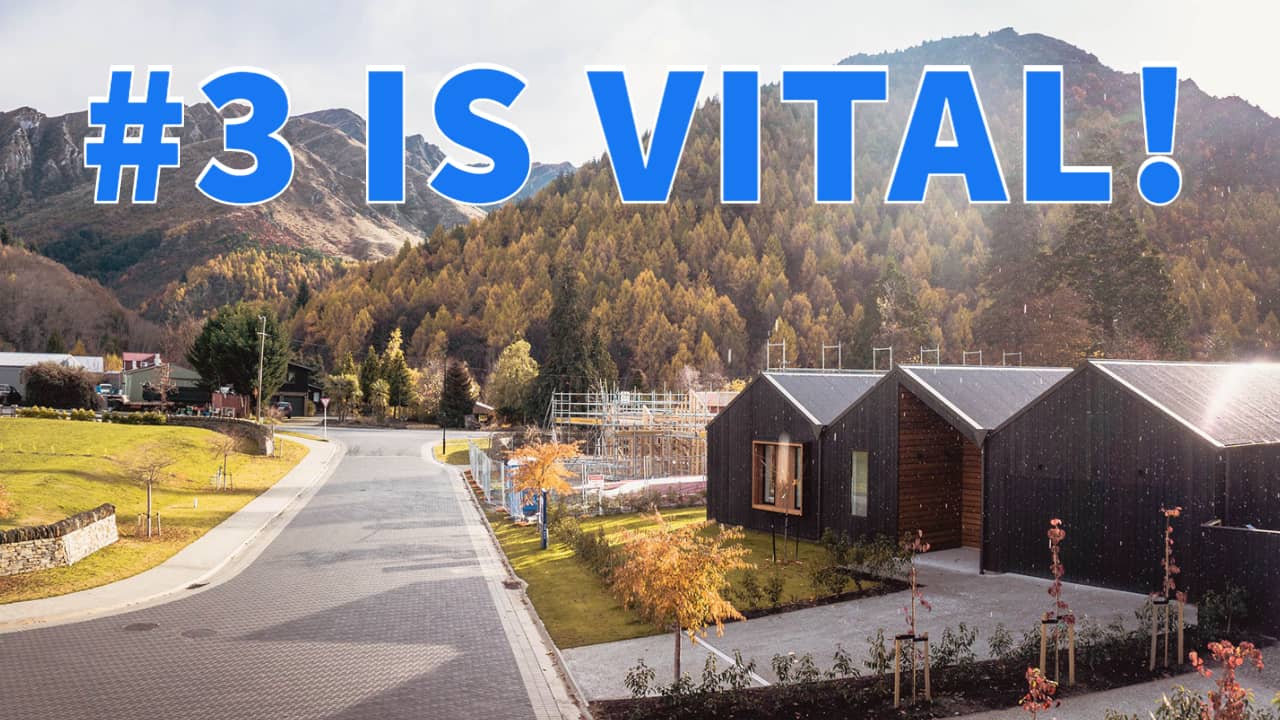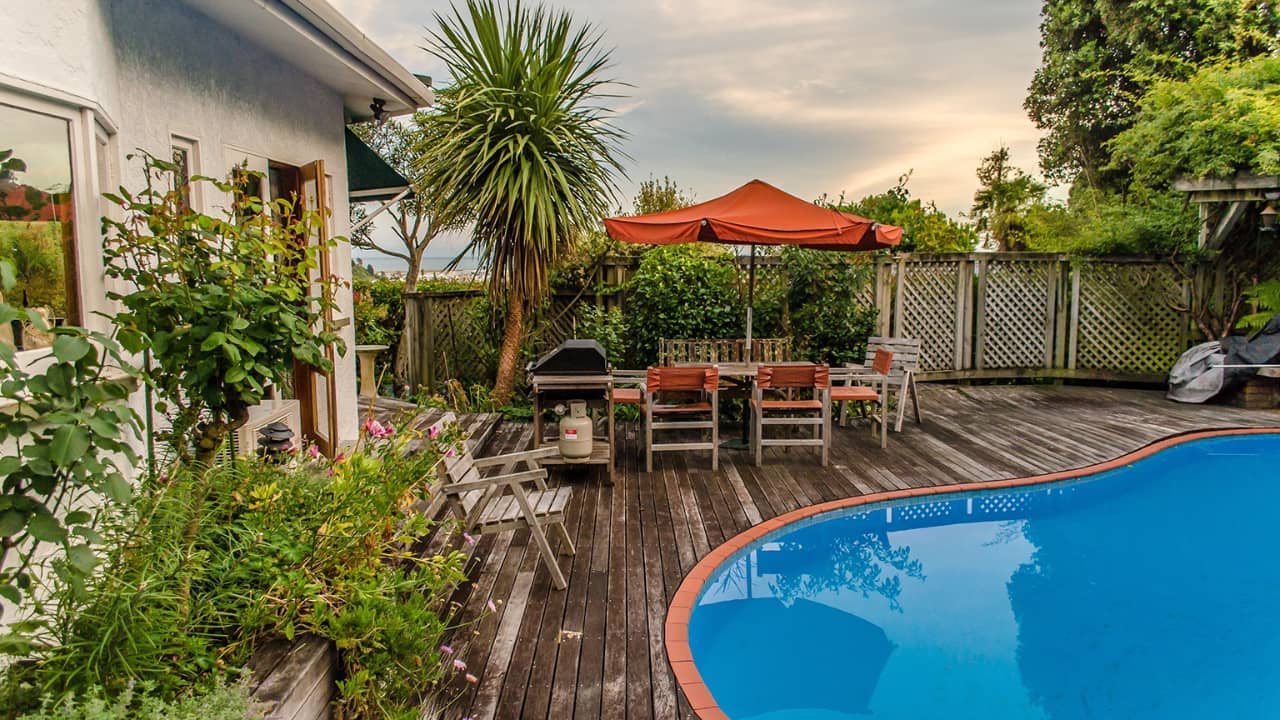
(9-minute read)
If you were debating about whether to buy or to continue renting before the pandemic hit in 2020, you may well be feeling more inspired about home ownership in the low interest environment if your income has remained stable and you have a deposit saved.
The argument for owning vs renting has strengthened when home lending rules have become easier. Let’s review the benefits (and potential issues!) of getting into the property market.
1) You Are Better Protected from Financial Troubles
John Bolton, head of Squirrel Mortgages, says homeowners have done demonstrably better from the Government and the Reserve Bank than renters during this year’s pandemic. Mortgage deferrals have effectively let people “live in their houses for free,” for a period, says Mr Bolton.
Meanwhile, though rent increases have been frozen since lockdown until 25 September, a number of landlords are now planning to put rents up, according to media reports.
If you have any way of accumulating a deposit to buy a home, now is the time to do it, say a growing number of real estate commentators. Mortgages are a form of forced savings, says Mr Bolton.
“You’ve also got to remember, if you’re paying an interest rate of 2.5% and the property is going up in value on average by 3.5% or 4% annually, then you’re actually living for free and building up equity in the property at the same time,” says Mr Bolton.
Home ownership gives a feeling of genuine security, of having a roof over your head, rather than renting, says Mr Bolton. And this is something first home buyers are truly realising at the moment, he says.
2) Homeowners Enjoy Cheap & Easy Business Loans
In a tough economic climate, you can use the security of your home to help borrow for your business. If you have a partner earning a salary, you might also be able to set up a new business or buy a new business using some of the equity you have built up in your home.
Loan Market mortgage adviser, Mikey Smith says: “Getting a bank loan if you own a business without a home is extremely difficult. If you don’t have your home to use as security, then good luck,” he says.
The biggest advantage for business owners with a home is that, rather than paying personal loan rates of between 7% to 15%, the finance can come from your home loan, says Mr Smith. You can structure a loan for the business over five years at 2.49% which is a huge advantage, he says.
If you’re a long term renter thinking of buying you not only have the incentive of low interest rates but also for those millennials among you, your KiwiSaver is maturing to levels of between $60,000 and $100,000 which is a very useful contribution to a deposit.
Friends might think of buying together to make the finances stack up. And the trend for parents and grandparents “gifting” their grown up children a contribution towards a home deposit is also gathering pace, says the Loan Market mortgage adviser.
He says he’s seeing a “massive amount” of gifting going on in families since lockdown finished.

3) You Get Back Your Financial Freedom
A key question Mr Smith asks renters considering buying, is: ”In 15 years, do you think you’ll be paying the same rent as today?” Probably not, it’s likely to be higher,” he tells them. While your mortgage payment is likely to be lower in relation to your income, he says.
The problem with renting is you have no control over any part of it, he adds. Whereas, if you’re paying a mortgage, you can always extend the term of the loan so that your payments are less, or you can pay interest only for a period, he says.
You have options. And as your income rises, your mortgage will seem more and more affordable.
It seems likely that low interest rates will stay low for a good five years possibly even 10, adds Mr Smith.
And while banks would still prefer you to have a 20% house deposit even during a time when the Reserve Bank has lifted LVR restrictions, it could be worth talking to a mortgage adviser about what is possible.
If you’re making a lower deposit you’ll likely pay a low equity margin on the interest rate but then a bit on top, say 0.25% if you have a 15% deposit or 0.75% if you have a 10% deposit, says the mortgage adviser.
Some banks will just charge a fee, it tends to be done on a case by case basis depending on your income capacity, says Mr Smith.
“If you’ve got a 17% deposit with 3% to go it can still be worth getting on the ladder and setting up a first year of payment plan to cover the 3% which could be an extra $100 a week,” he says. What a lot of people do is rent out a room to help cover this extra expense for a year or two.
“It’s pretty standard to charge a couple of hundred dollars a week for a room, “ he adds.
4) Properties Can Be More Expensive to Rent Than to Own
A renovated 3-bedroom home in Mt Albert, Auckland would cost renters around $750 a week and your mortgage payments would be very similar, depending on what your deposit is.
Mr Hawes says he marketed a one bedroom unit in Western Springs earlier this year and pre-Covid couldn’t sell it for a price the seller wanted, with offers getting to $530,000. By the end of the campaign, post-lockdown, thanks to lower interest rates, the property turned cashflow positive and it sold for $560,000.
“In other words, the tenants were paying $100 more a week rent than if they bought it,” he explains. With low interest rates, there are many examples of a home costing less to buy than to rent as long as you have the deposit, he says.
The Ray White agent thinks the message is getting through to renters with good savings. He talked to a landlord whose tenant had given notice to go and buy after 11 years of renting.
“I would be doing everything possible to try and buy a house at the moment,” says Mr Hawes, who deals with high earning executives who have been renting for years. He’s telling them, prices are not going to abate, there are too many people out looking.
Even if you want to start with an investment property, with low interest rates you can pay down debt on an investment property with tenants contributing, he says.

5) Homeownership Is a Heavily Tax-Advantaged Proposition in New Zealand
Owning a home is great for people with a lot of savings, but for people borrowing a lot, it’s a risky proposition, says Westpac chief economist Dominick Stephens.
“If looking at homeownership on a wealth accumulation basis, it’s the only way to accumulate wealth where you’re not taxed at all, it’s what distinguishes homeownership from all other investments,”says Mr Stephens.
“Our tax system benefits those with enough resources to get on the property ladder,” he says.
Trade Me Property recently reported a 9% increase in the national average asking price in the year to July, the biggest percentage increase in three years.
The Westpac chief economist, after initially saying that house prices would drop this year due to the pandemic, is now forecasting a 6.3% rise in house prices in 2020 and 8% next year.
How to Buy a House With Little or No Deposit
Do you get a creeping sense of dread every time you look at your savings account because your home deposit target has inched out of reach again?
You’re not alone, but there is a solution!
One option is to look into buying a house with a friend or a family member. This way you can share the financial burden and both get a foot onto the property ladder.
Win win? Well, it’s not all plain sailing as there are some big financial and legal implications to consider when buying a house this way. Especially if the relationship goes south. Here are some things to consider when deciding if shared ownership is an option for you.
How does this work?
This type of ownership is known as a tenants-in-common ownership. In very simple terms, buying as tenants-in-common means buying a house with another person, or people, without being in a stable relationship with them.
It’s nothing new – investors have been doing it for ages. Rather than buying a house jointly, as for example a married couple would, tenants-in-common each have separately transferable interests, and separate shares of the property. Always ensure that this status is specified on the title.

4 Things You Need to Do Before Co-Buying a House in New Zealand:
1. Explore your mortgage options
Approaching the bank manager with your best friend and asking for a mortgage together may not be completely straightforward.
Some lenders may be very risk averse and won’t even entertain the idea. Others might allow you to mortgage independent shares, where each party owns interests in the property that may or may not be equal, but are clearly defined.
But take note: everyone is equally and jointly responsible for the loan in its entirety.
In short, always make sure you’re able to secure the loan you want before making an offer.
2. Access Legal Advice and Create an Agreement.
When you’re co-owning a house with a friend or family, remember, reliability is key. Not only will you be sharing the cost of mortgage repayments, but there are many ongoing costs to consider including maintenance, insurance and council rates.
Firstly, you need to choose someone you trust, with whom you can – and must –discuss all the nitty gritty details of sharing a mortgage.
However, the more important step in covering yourself is signing a co-ownership agreement. Hire a lawyer to draw this up for you, so you can ensure all the legal checkboxes are ticked. Among the common issues covered on a co-ownership agreement are:
- Who is bound by the agreement?: this will be the friend or family member, partner or anyone else who’s part of this house purchase.
- How much each person is putting forward?: are you all going for equal shares with an equal investment? Or will some people have a greater stake?
- What happens if one party defaults on a payment?: will one of the other parties step in and make this payment? If so, how will that impact the agreement structure you have in place?
- How will you handle disputes?: it’s a good idea to consider areas of contention other than payments, and how you’ll deal with disagreement.
- Division of responsibilities: these might include maintenance and ensuring bills are paid on time. This could also cover what you’ll do if one party wants to make renovations that the others aren’t keen on.
- What happens if one party wants to sell?: does everyone need to agree? How will they be bought out of their share?
- What happens when everyone wants to sell?: how will you divide the profit or loss?
3. Consider Financial Liabilities
What if the dream of living in your own house together actually turns into a nightmare when the other person changes their mind and takes off?
If you’re a joint borrower, then you have to pay the bank back all of what you borrowed, not just your share. If you don’t, the bank can sell the property as a mortgagee sale.
Also note that, as you’re liable for the entire amount of the loan, your borrowing power could be affected for future loans.

4. Plan Ahead
The best way to enter an agreement of this type is to discuss every possible scenario, positive or negative, before signing up. That includes what you’ll do if someone defaults on the loan, if they want to sell before you do, or if an expensive problem pops up.
Work it all out, in great detail, before it actually happens. Cover yourself legally as much as you can, and take great care.
If you’re planning on living together in the home, make sure you agree on how you want to live. Have the hard conversations around lifestyle, long-term plans, and expectations of each other to avoid any problems in the future.
While there’s a lot to consider before buying a home with friends or family, with good communication and the protection of a robust legal agreement, it could be a great way to make your home ownership dreams a reality.
Source: TradeMe
What do you think about it? Tag me on your favourite social media (Facebook / Instagram / LinkedIn / Twitter).
P.S. I research and interview economists, NZ investors and profitable companies to find tools & tactics that you can use to achieve financial freedom.
➔ Join my private newsletter to be the first one to learn insider tips! Here are examples of what you’ll get. It’s FREE. You can unsubscribe at any time. I treat your email as my top secret.
IMPORTANT: This article is of general nature only and readers should obtain advice specific to their circumstances from professional advisers.